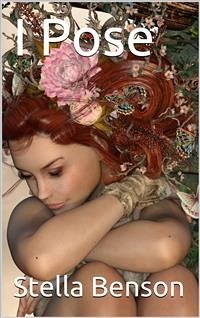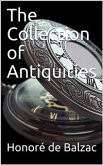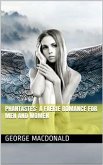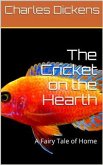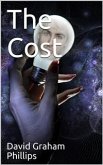Stella Benson was born on 6 January 1892 at Lutwyche Hall, an Elizabethan Mansion in South Shropshire, England, and her aunt was novelist Mary Cholmondeley. Her background was privileged but her health was poor. She became a devoted reader and a regular diarist; she inherited a passionate concern for social issues, and in particular women's suffrage, from her mother and her aunts.
Wen the First World War came she worked as a gardener and she supported poor women in the East End of London who had suddenly found themselves having to earn their own living.
Those experiences provide the foundations for her first novel, published in 1915; and what she builds on those foundations is odd, unexpected, and gloriously creative.
She tells the story of two characters - a gardener and a suffragette. They are never named, but that really doesn't matter.
First there is the gardener, a young man with independent means who is proceeding through life by adopting a series of poses that allow him to be exactly who he wants to be and to address those around him in riddles and witticisms.
On the spur of the moment he sets out to try the life of a vagabond.
"I have left everything I have as hostages with fate," said the gardener. "When I get tired of Paradise, I'll come back."
He has not travelled far when he encounters the suffragette. She too is posing: not when she speaks about suffrage, which she cares about deeply, but when she claims not to care about whether she lives or dies, about whether she is loved or not, about whether she is hurt or harmed.
The gardener was concerned when he found the suffragette intended to blow up a church.
'The gardener, of course, shared the views of all decent men on this subject. One may virtuously destroy life in a good cause, but to destroy property is a heinous crime, whatever its motive..'
He took action, and that was the first step in an adventure that would take them to the a distant, exotic island group and back again, meeting all kinds of characters, having all kinds of experiences and learning all kinds of lessons.
They would pose as a married couple and they would proceed in opposing directions.
The narrator intervened from time to time, posing just as much as her creations, and that balanced things beautifully.
There was a lovely Scottie dog, there was a recue at sea, there was a lady novelist, there was an earthquake, there was the indomitable Mrs Rust:
'"I don't agree with you at all," said Mrs. Rust, who now made this remark mechanically in any pause in the conversation.'
The gardener would fall in love with the suffragette; but the suffragette would fall more deeply in love with her cause - or maybe with her pose.
Wen the First World War came she worked as a gardener and she supported poor women in the East End of London who had suddenly found themselves having to earn their own living.
Those experiences provide the foundations for her first novel, published in 1915; and what she builds on those foundations is odd, unexpected, and gloriously creative.
She tells the story of two characters - a gardener and a suffragette. They are never named, but that really doesn't matter.
First there is the gardener, a young man with independent means who is proceeding through life by adopting a series of poses that allow him to be exactly who he wants to be and to address those around him in riddles and witticisms.
On the spur of the moment he sets out to try the life of a vagabond.
"I have left everything I have as hostages with fate," said the gardener. "When I get tired of Paradise, I'll come back."
He has not travelled far when he encounters the suffragette. She too is posing: not when she speaks about suffrage, which she cares about deeply, but when she claims not to care about whether she lives or dies, about whether she is loved or not, about whether she is hurt or harmed.
The gardener was concerned when he found the suffragette intended to blow up a church.
'The gardener, of course, shared the views of all decent men on this subject. One may virtuously destroy life in a good cause, but to destroy property is a heinous crime, whatever its motive..'
He took action, and that was the first step in an adventure that would take them to the a distant, exotic island group and back again, meeting all kinds of characters, having all kinds of experiences and learning all kinds of lessons.
They would pose as a married couple and they would proceed in opposing directions.
The narrator intervened from time to time, posing just as much as her creations, and that balanced things beautifully.
There was a lovely Scottie dog, there was a recue at sea, there was a lady novelist, there was an earthquake, there was the indomitable Mrs Rust:
'"I don't agree with you at all," said Mrs. Rust, who now made this remark mechanically in any pause in the conversation.'
The gardener would fall in love with the suffragette; but the suffragette would fall more deeply in love with her cause - or maybe with her pose.

